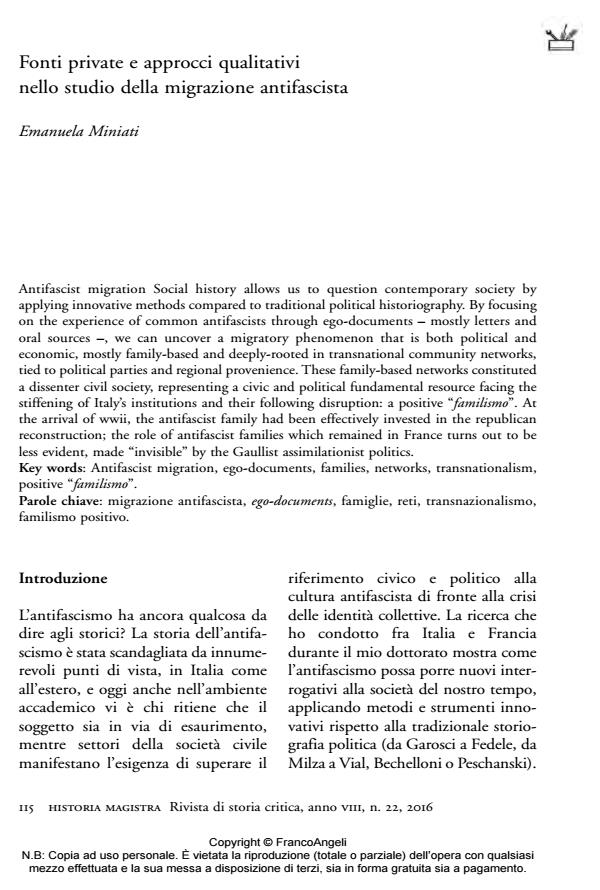Fonti private e approcci qualitativi nello studio della migrazione antifascista
Journal title HISTORIA MAGISTRA
Author/s Emanuela Miniati
Publishing Year 2017 Issue 2016/22
Language Italian Pages 14 P. 115-128 File size 101 KB
DOI 10.3280/HM2016-022009
DOI is like a bar code for intellectual property: to have more infomation
click here
Below, you can see the article first page
If you want to buy this article in PDF format, you can do it, following the instructions to buy download credits

FrancoAngeli is member of Publishers International Linking Association, Inc (PILA), a not-for-profit association which run the CrossRef service enabling links to and from online scholarly content.
Antifascist migration Social history allows us to question contemporary society by applying innovative methods compared to traditional political historiography. By focusing on the experience of common antifascists through ego-documents - mostly letters and oral sources -, we can uncover a migratory phenomenon that is both political and economic, mostly family-based and deeply-rooted in transnational community networks, tied to political parties and regional provenience. These family-based networks constituted a dissenter civil society, representing a civic and political fundamental resource facing the stiffening of Italy’s institutions and their following disruption: a positive "familismo". At the arrival of wwii, the antifascist family had been effectively invested in the republican reconstruction; the role of antifascist families which remained in France turns out to be less evident, made "invisible" by the Gaullist assimilationist politics.
Keywords: Antifascist migration, ego-documents, families, networks, transnationalism, positive "familismo".
Emanuela Miniati, Fonti private e approcci qualitativi nello studio della migrazione antifascista in "HISTORIA MAGISTRA" 22/2016, pp 115-128, DOI: 10.3280/HM2016-022009